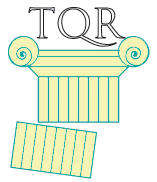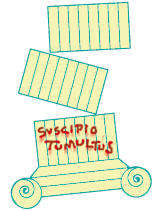Post by rorschalk on Jul 7, 2021 18:59:42 GMT
Dear Ms. VC,
Here's your rejection, with love. Quick turn around's a plus right? The following is Rockefeller's discussion of your cap on the floor.
In the first few pages of VC's cap, nine-year-old Maggie gives a rundown of her extended family tree. You'd think it'd be boring, what with nothing really happening beyond some backstory about Great-Gran and Gramps having traveled to and homesteaded this distant world they all live on. But I'm a sucker for good SF, and wondering what it was about kept me reading. Plus the writing's tight, clean and voicey. Though I did wonder why this girl from our far flung future narrates in an almost hillbilly-esque lingo where folk still take shines, spin tales, divvy up chores, marry off and are nice as pie. But okay. Maybe it's steampunk. An alternate history thing where it's the Clampett's kinfolk made it to the stars, the only linguistic evolution being that chess is now a proper noun, Chezz, and checkmate is Chezzmake. Anyway, to make a story shorter, G-Gran, whose health is failing, has this magical ability to switch bodies with people. Because of how grateful all her progeny are for her having spawned them, they all take turns loaning her their younguns for the summer.
My parents used to loan me out summers. Mostly to religious community farms, but twice to my grandma and grandpa at their cottage on Chesapeake Bay. Gramps was still working as a millwright. So Granny was stuck trying to keep twelve-year-old me entertained. No mean feat back before Ritalin. She taught me how to gossip, gave me big balls of yarn to untangle, and sent me out fishing and crabbing a lot. Never once swapped bodies with me, though (and still made it to 107).
But all Maggie's great-granny ever does is beat her at Chezz mornings, then trade places with her for the day. I didn't get why or how families kept the body-lending aspect of these summer visits secret from their young "volunteers." If granny had made me sit around quilting all day, every day in her wiry old body, I'd sure as shit have warned my sisters ahead of their turns. And Maggie's great-gran is in way worse shape than my grandmother ever was... except maybe right at the very end where we were told by those in attendance that they'd dimmed the lights in her room, had hymns playing softly in the background... really, done everything they could do but hit her with a shovel to send her on her merry way. So I also wondered how and why G-Gran endured the rest of the year. But mostly I wondered why the story was coerced into science fiction when it would've worked so much better as a historical piece with G-Gran cast as a witch, set maybe in the Ozarks. So even if the not-very-surprise ending hadn't somewhat sucked, I'd be giving this a pass. Albeit with writerly apologies and respect.
PS
Great-Gran is the only left.
Is there a word missing here, or is it just a voice thing?
Here's your rejection, with love. Quick turn around's a plus right? The following is Rockefeller's discussion of your cap on the floor.
In the first few pages of VC's cap, nine-year-old Maggie gives a rundown of her extended family tree. You'd think it'd be boring, what with nothing really happening beyond some backstory about Great-Gran and Gramps having traveled to and homesteaded this distant world they all live on. But I'm a sucker for good SF, and wondering what it was about kept me reading. Plus the writing's tight, clean and voicey. Though I did wonder why this girl from our far flung future narrates in an almost hillbilly-esque lingo where folk still take shines, spin tales, divvy up chores, marry off and are nice as pie. But okay. Maybe it's steampunk. An alternate history thing where it's the Clampett's kinfolk made it to the stars, the only linguistic evolution being that chess is now a proper noun, Chezz, and checkmate is Chezzmake. Anyway, to make a story shorter, G-Gran, whose health is failing, has this magical ability to switch bodies with people. Because of how grateful all her progeny are for her having spawned them, they all take turns loaning her their younguns for the summer.
My parents used to loan me out summers. Mostly to religious community farms, but twice to my grandma and grandpa at their cottage on Chesapeake Bay. Gramps was still working as a millwright. So Granny was stuck trying to keep twelve-year-old me entertained. No mean feat back before Ritalin. She taught me how to gossip, gave me big balls of yarn to untangle, and sent me out fishing and crabbing a lot. Never once swapped bodies with me, though (and still made it to 107).
But all Maggie's great-granny ever does is beat her at Chezz mornings, then trade places with her for the day. I didn't get why or how families kept the body-lending aspect of these summer visits secret from their young "volunteers." If granny had made me sit around quilting all day, every day in her wiry old body, I'd sure as shit have warned my sisters ahead of their turns. And Maggie's great-gran is in way worse shape than my grandmother ever was... except maybe right at the very end where we were told by those in attendance that they'd dimmed the lights in her room, had hymns playing softly in the background... really, done everything they could do but hit her with a shovel to send her on her merry way. So I also wondered how and why G-Gran endured the rest of the year. But mostly I wondered why the story was coerced into science fiction when it would've worked so much better as a historical piece with G-Gran cast as a witch, set maybe in the Ozarks. So even if the not-very-surprise ending hadn't somewhat sucked, I'd be giving this a pass. Albeit with writerly apologies and respect.
PS
Great-Gran is the only left.
Is there a word missing here, or is it just a voice thing?



